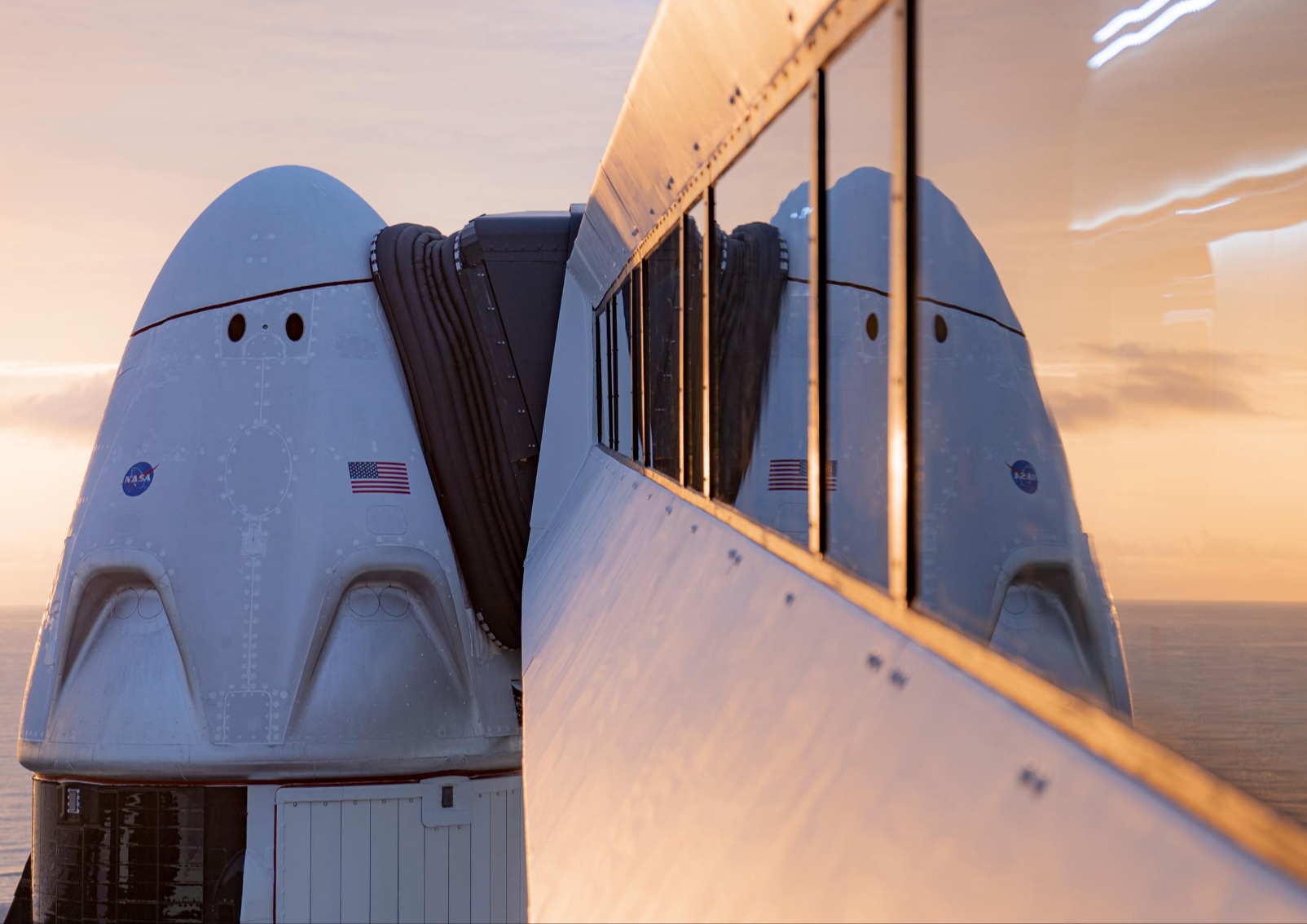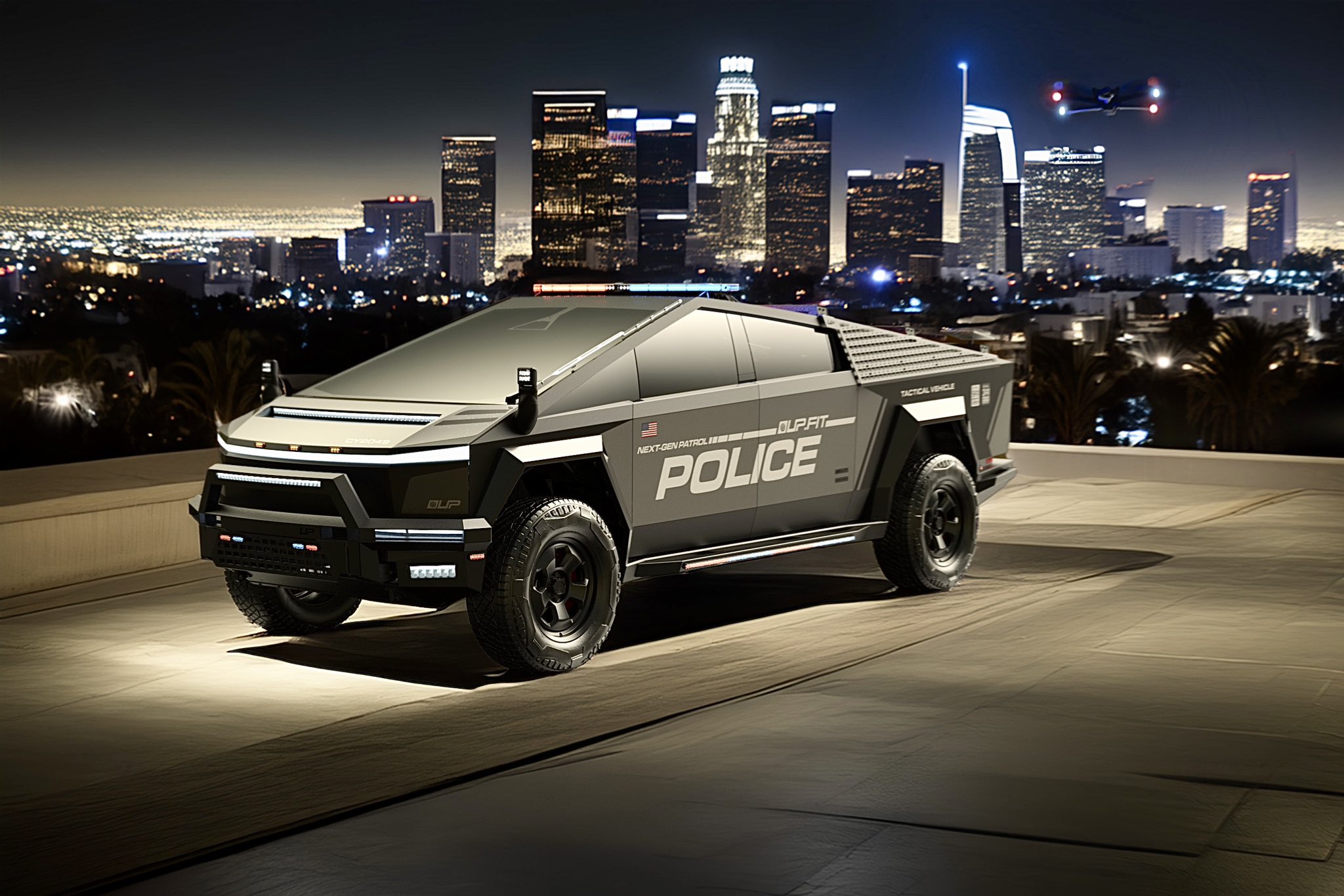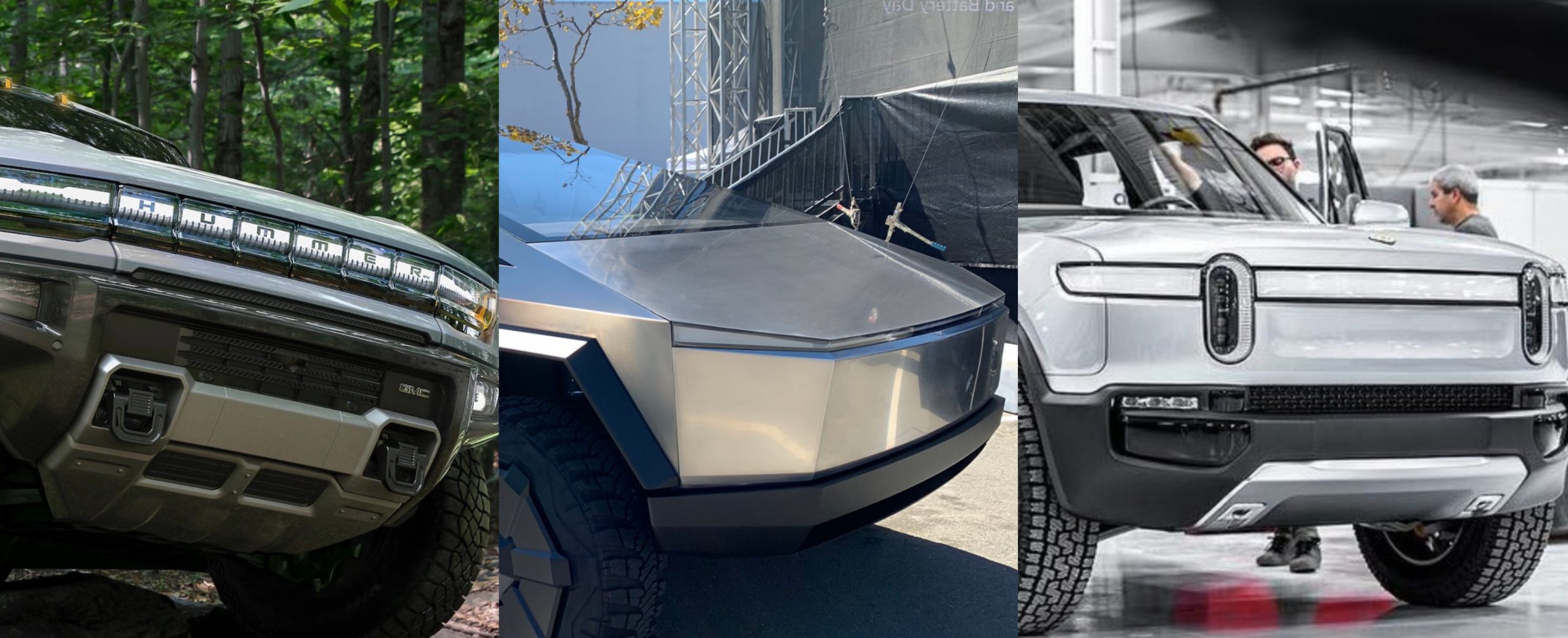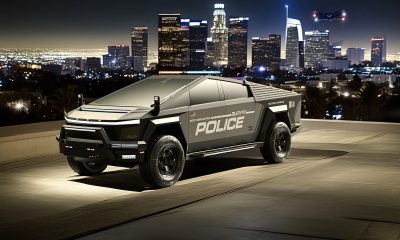The Tesla community is one of the more polarizing groups that exists in the world of cars. It appears that it is almost 50/50 in terms of whether supporters of Tesla are willing to lend their support to other manufacturers. Some aren’t willing to hear other companies out.
While there isn’t an overwhelming push in one way or another, one thing is for certain: Tesla supporters love Tesla. But whether they’re willing to commend another automaker for developments that they may have made or cars they plan to build is a different story.
For years, Tesla was always considered a car company that didn’t have much potential. It didn’t have much money. It didn’t have many proven automotive industry veterans behind the engineering or supply chain of their cars, and it was trying to convince people that gas was inferior to electric. In 2008, this wasn’t a simple task. It was closer to impossible at the time.
Only a few people could afford Tesla’s Roadster, which was all apart of the plan so the company could pile up some funding for future projects. But on top of that, even if it was affordable, would people have bought it? Who knows.
This is a preview from our weekly newsletter. Each week I go ‘Beyond the News’ and handcraft a special edition that includes my thoughts on the biggest stories, why it matters, and how it could impact the future.
But after Tesla started manufacturing the Model S, people began to really listen. People had invested their money into the company’s IPO just two years earlier, and the Model S was the sleek, fast, and pretty car that everyone wanted. But it was still an uphill climb. After the Model X came out, it wasn’t much of a difference; it was just the SUV version of an electric car. But the Model 3 came around and convinced many people around the world that Tesla was for real. It had built a car that people could afford. It had great range, it had performance. Most of all, Tesla proved that it could mass-produce a vehicle, even if it was hell.
Slowly but surely, the doubters switched sides. They realized they had been all wrong about Tesla, but the early investors and the people who have believed in the company since the beginning weren’t having it. Who could blame them?
They had believed in Tesla from the start. They were the ones who knew that Elon Musk could lead the company to a new era, and they were right. Now that others are coming on board, there is a spot in that where many of us can feel a bit of sympathy for them. If you weren’t with us then, don’t be with us now. Hints of a bandwagon feel come to mind when explaining this situation. It’s almost reminiscent of how I see a lot of Chiefs hats and jackets at the store now. I don’t for a second believe there are this many Kansas City fans in York County, PA.
I don’t necessarily disagree with what the Tesla loyal fans are doing. They have believed in Tesla since day 1, and now that it’s the most valuable car company in the world and is successful, many people are on board, and that can be not very pleasant.
However, more fans means more sales, which means the stock price goes up. It means there are more EVs on the road instead of gas cars, and it means Tesla’s mission is coming true. While the fandom is something that can be chalked up to a “bandwagon feel,” maybe some people just wanted proof that Tesla was for real, and I can understand that too.
Tesla’s Day 1’s also have had to deal with other car companies casting stones in Tesla’s direction for years. GM, Ford, all of these companies didn’t care about making EVs. They would roll out one or two models, some of them never even making it to production lines. Then they would say Tesla’s business model was ridiculous or unsustainable. Now, they’re drawing inspiration from that “unsustainable” company. Interesting how that works, isn’t it?
Now that other car companies are all about the electric mission, they’re claiming their car is the “Tesla Killer” (a term I have come to hate in my time as an automotive journalist). They’re claiming their batteries will be better, and their cars will be cheaper. Blah blah blah, we’ve all heard it before. The problem is these companies continue to talk the talk but not walk the walk. They’re always saying how they will be the next big thing, but it rarely comes to fruition considering car companies constantly delay releases or do away with projects completely.
On the other hand, Elon has always been an open supporter of more car companies making more EVs. It all contributes, and I don’t think he’s ever taken any criticism very personally; I would imagine he’s used it as motivation based on the way things have turned out. I personally commend him for always taking the high road and never being petty or ugly toward a car company that hasn’t supported him. I think it only added fuel to the fire for him and made him want to accomplish the Master Plan that much more.
But if we all love Elon and support him and are thankful for what he’s done for the EV community, should we take his guidance and support other car companies for what they’re trying to do? Is it just a lost cause? What do you make of other car companies trying to release effective modes of electric transport?
Personally, I support any EV. I will never say that any EV is better than Tesla’s because I truly believe they are the best EVs out there. I think there are always things to work on, but if you want something that will be dependable and deliver great range, Tesla is the best option currently.
I do like other car companies, too. Rivian and Lucid are both showing tremendous potential, and I think they have a great chance to be right there in a few years. Volkswagen will always have a little place in my heart since the first car I ever had was a 1998 Jetta K2, but I think they have a lot of work to do. It will get done, I’m sure, but if I am going to support an EV company that once produced ICE, it will be VW.
I would love to hear what your thoughts are on this. I want to know if you support other car companies that are producing EVs, or are you Tesla-loyal? Let’s keep it respectful as always. Please do not openly attack any company or attack anyone else’s beliefs. Try and be as respectful as you can and consider everyone’s opinions.
A big thanks to our long-time supporters and new subscribers! Thank you.
I use this newsletter to share my thoughts on what is going on in the Tesla world. If you want to talk to me directly, you can email me or reach me on Twitter. I don’t bite, be sure to reach out!
News
SpaceX’s Crew-11 mission targets July 31 launch amid tight ISS schedule
The flight will lift off from Launch Complex 39A at Kennedy Space Center in Florida.

NASA and SpaceX are targeting July 31 for the launch of Crew-11, the next crewed mission to the International Space Station (ISS). The flight will lift off from Launch Complex 39A at Kennedy Space Center in Florida, using the Crew Dragon Endeavour and a Falcon 9 booster.
Crew Dragon Endeavour returns
Crew-11 will be the sixth flight for Endeavour, making it SpaceX’s most experienced crew vehicle to date. According to SpaceX’s director of Dragon mission management, Sarah Walker, Endeavour has already carried 18 astronauts representing eight countries since its first mission with NASA’s Bob Behnken and Doug Hurley in 2020, as noted in an MSN report.
“This Dragon spacecraft has successfully flown 18 crew members representing eight countries to space already, starting with (NASA astronauts) Bob (Behnken) and Doug (Hurley) in 2020, when it returned human spaceflight capabilities to the United States for the first time since the shuttle retired in July of 2011,” Walker said.
For this mission, Endeavour will debut SpaceX’s upgraded drogue 3.1 parachutes, designed to further enhance reentry safety. The parachutes are part of SpaceX’s ongoing improvements to its human-rated spacecraft, and Crew-11 will serve as their first operational test.
The Falcon 9 booster supporting this launch is core B1094, which has launched in two previous Starlink missions, as well as the private Ax-4 mission on June 25, as noted in a Space.com report.
The four-members of Crew-11 are NASA astronauts Zena Cardman and Mike Fincke, as well as Japan’s Kimiya Yui and Russia’s Oleg Platonov.
Tight launch timing
Crew-11 is slated to arrive at the ISS just as NASA coordinates a sequence of missions, including the departure of Crew-10 and the arrival of SpaceX’s CRS-33 mission. NASA’s Bill Spetch emphasized the need for careful planning amid limited launch resources, noting the importance of maintaining station altitude and resupply cadence.
“Providing multiple methods for us to maintain the station altitude is critically important as we continue to operate and get the most use out of our limited launch resources that we do have. We’re really looking forward to demonstrating that capability with (CRS-33) showing up after we get through the Crew-11 and Crew-10 handover,” Spetch stated.
Lifestyle
EV fans urge Tesla to acquire Unplugged Performance for edge in fleet and security industry
Unplugged Performance has built a name for itself by producing performance upgrades for Tesla vehicles.

A growing number of Tesla enthusiasts and longtime community voices are calling on the electric vehicle maker to acquire Unplugged Performance, a California-based aftermarket company best known for tuning Tesla vehicles and developing specialized government fleet solutions under its UP.FIT division.
The idea was once considered a niche proposal among EV fans, but it is now gaining serious attention not just as a performance play but as a strategic move to deepen Tesla’s roots in the fleet and security industry.
A strategic fit
Unplugged Performance has built a name for itself by producing performance upgrades for Tesla vehicles, from track-optimized components to visual and aerodynamic upgrades. But in recent years, its UP.FIT division has pivoted toward a more functional future by outfitting Tesla vehicles like Model Ys for police, military, and government use.
That work has sparked growing calls for closer collaboration with Tesla, especially as the EV maker increasingly leans into autonomy, AI, and fleet services as core components of its next chapter.
“I posted this four years ago, but I think it’s more true now than ever,” wrote Whole Mars Catalog, a well-known Tesla investor and FSD Beta tester, on X. “Tesla should buy Unplugged. But not just as a Performance division. What they are doing with UP.FIT unlocks large government and commercial fleet purchases that can improve utilization.”
Tesla fans such as shareholder Sawyer Merritt echoed the sentiment, calling Unplugged a “great fit within Tesla.” adding, “They are literally located directly next to Tesla’s design studio in Hawthorne.”
Enabling the next wave
Supporters of the idea noted that integrating Unplugged into Tesla’s corporate structure could help accelerate the adoption of autonomous technologies in government sectors. With UP.FIT patrol cars already in use across some U.S. police departments, Tesla fans envisioned a future where self-driving Teslas could potentially revolutionize law enforcement, search-and-rescue, and public service logistics.
“Just imagine how autonomous patrol cars could transform policing and bring us into a safer future,” the veteran FSD tester wrote.
The benefits could also extend to Tesla’s existing consumer base. “They also have some incredible products in the works that I think will appeal to many ordinary Tesla drivers — not just those looking for performance or mods. Stuff that’s so good it should have come straight from the design studio next door,” Whole Mars Catalog noted.
Unplugged Performance, founded in 2013, shares not just a product vision with Tesla, but also geography. Its Hawthorne headquarters sits directly adjacent to Tesla’s design studio, and the two companies have maintained a close working relationship over the years. The aftermarket firm has long positioned itself as a “mission-aligned” partner to Tesla.
In response to the recent calls for acquisition, Unplugged Performance acknowledged the support from the community. “Our very existence is to support the Tesla mission with @UpfitTesla and @UnpluggedTesla,” Unplugged CEO Ben Schaffer posted on X. “We love working with Tesla and are grateful for the community’s support since 2013!”
News
Tesla debuts hands-free Grok AI with update 2025.26: What you need to know
All new Tesla vehicles delivered on or after July 12, 2025, will include Grok AI out of the box

Tesla has begun rolling out Grok, an in-car conversational AI assistant developed by xAI, to eligible vehicles starting July 12. The feature marks the most direct integration yet between Elon Musk’s artificial intelligence startup and Tesla’s consumer product lineup, offering drivers hands-free access to a chat-style companion while on the road.
Grok comes pre-installed on new vehicles
According to Tesla’s FAQ page for the feature, all new vehicles delivered on or after July 12, 2025, will include Grok AI out of the box. Owners of older vehicles may gain access through an over-the-air update, provided their vehicle meets a few hardware and software requirements.
Specifically, Grok is currently only supported on Tesla models equipped with an AMD infotainment processor and running vehicle software version 2025.26 and higher. Compatible models include the Model S, Model 3, Model X, Model Y, and Cybertruck. A Premium Connectivity subscription or active Wi-Fi connection is also required.
Tesla notes that additional vehicle compatibility may arrive in future software updates.
Grok’s features and limitations for now
Drivers can engage with Grok using the App Launcher or by pressing and holding the voice command button on the steering wheel. Grok is designed to answer questions and hold conversations using natural language, offering responses tailored to its chosen personality—ranging from “Storyteller” to the more eccentric “Unhinged.”
For fun, Tesla posted a demonstration of Grok likely running on “Unhinged” talking about what it would do to Optimus when they are on a date, much to the shock of the humanoid robot’s official social media account.
It should be noted, however, that Grok cannot currently issue commands to the vehicle itself, at least for now. Traditional voice commands for tasks like climate control, navigation, or media remain separate from Grok as of writing.
The feature is being released in Beta and does not require a Grok account or xAI subscription to activate, although that policy may change over time.
Grok privacy and in-car experience
Tesla emphasizes that interactions with Grok are securely processed by xAI and not linked to a user’s Tesla account or vehicle. Conversations remain anonymous unless a user signs into Grok separately to sync their history across devices.
Tesla has also begun promoting Grok directly on its official vehicle webpages, showcasing the feature as part of its in-car experience, further highlighting the company’s increasing focus on AI and infotainment features on its all-electric vehicles.
-

 Elon Musk2 weeks ago
Elon Musk2 weeks agoTesla investors will be shocked by Jim Cramer’s latest assessment
-

 Elon Musk3 days ago
Elon Musk3 days agoxAI launches Grok 4 with new $300/month SuperGrok Heavy subscription
-

 Elon Musk5 days ago
Elon Musk5 days agoElon Musk confirms Grok 4 launch on July 9 with livestream event
-

 News1 week ago
News1 week agoTesla Model 3 ranks as the safest new car in Europe for 2025, per Euro NCAP tests
-

 Elon Musk1 week ago
Elon Musk1 week agoxAI’s Memphis data center receives air permit despite community criticism
-

 News2 weeks ago
News2 weeks agoXiaomi CEO congratulates Tesla on first FSD delivery: “We have to continue learning!”
-

 News2 weeks ago
News2 weeks agoTesla sees explosive sales growth in UK, Spain, and Netherlands in June
-

 Elon Musk2 weeks ago
Elon Musk2 weeks agoTesla scrambles after Musk sidekick exit, CEO takes over sales


















